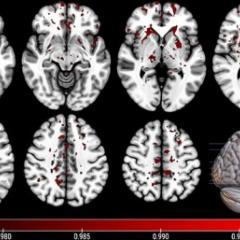Are you plagued with a continuing case of forgetting where you’ve placed your keys?
A spot of exercise could be just the answer after it was revealed how physical exercise can revitalize your brain.
Queensland Brain Institute researcher Dr Tara Walker was co-lead author in a study that looked at how neural stem cells could be activated to produce new cells in the hippocampus – one of the only regions of the brain that houses these stem cells.
The hippocampus is also associated with learning and memory.
The creation of new brain cells, or neurons, is commonly known as neurogenesis, and begins when a neural stem cell divides and multiplies, or proliferates, into progenitor cells – which then mature into new, functional neurons.
Exercise has long been known to increase neurogenesis, but how it plays this role has remained a mystery.
Using animal models, the researchers discovered that the dormant stem cells in the hippocampus have very high levels of reactive oxygen species (ROS) – an oxygenated, unstable molecule that reacts with other molecules in a cell.
They found exercise helps kick-start the neurogenesis process by knocking the stem cells out of this high ROS state, plunging them into a primed stage, before they move into the low ROS proliferation stage where they birth new neurons.
These new neurons then play crucial roles in regulating mood, memory and spatial learning.
This study has revealed one of the ways exercise increases neurogenesis and will have major implications in the design of new therapeutics that could counteract cognitive decline as we age. Particularly for those that are unable to exercise. This is the focus of the current research being conducted by Dr Walker at the Queensland Brain Institute.
This research was conducted out of the Technische Universitaet Dresden and was first published in Cell Stem Cell.



